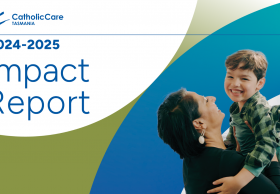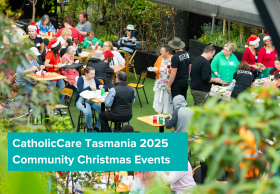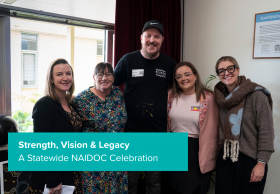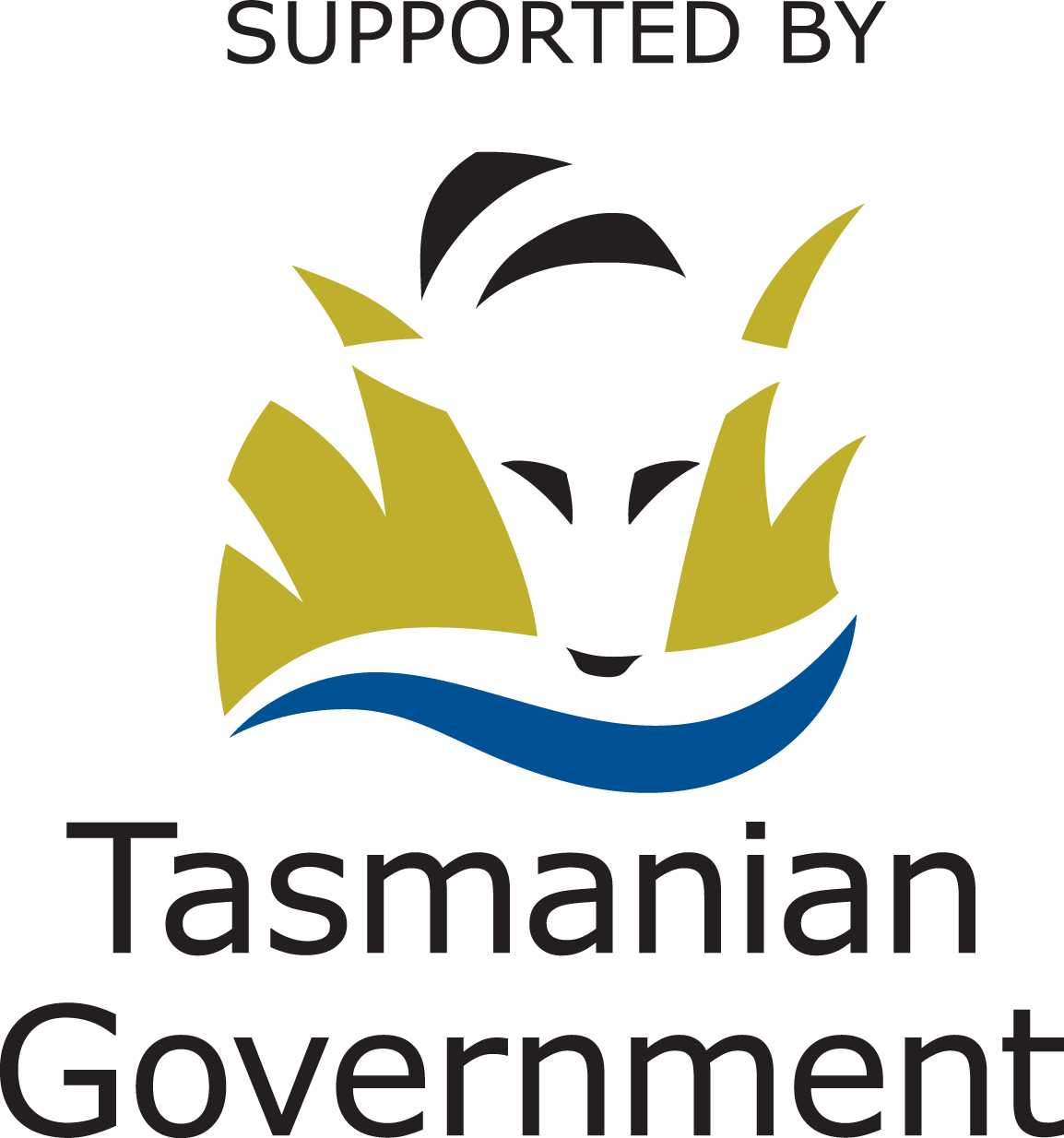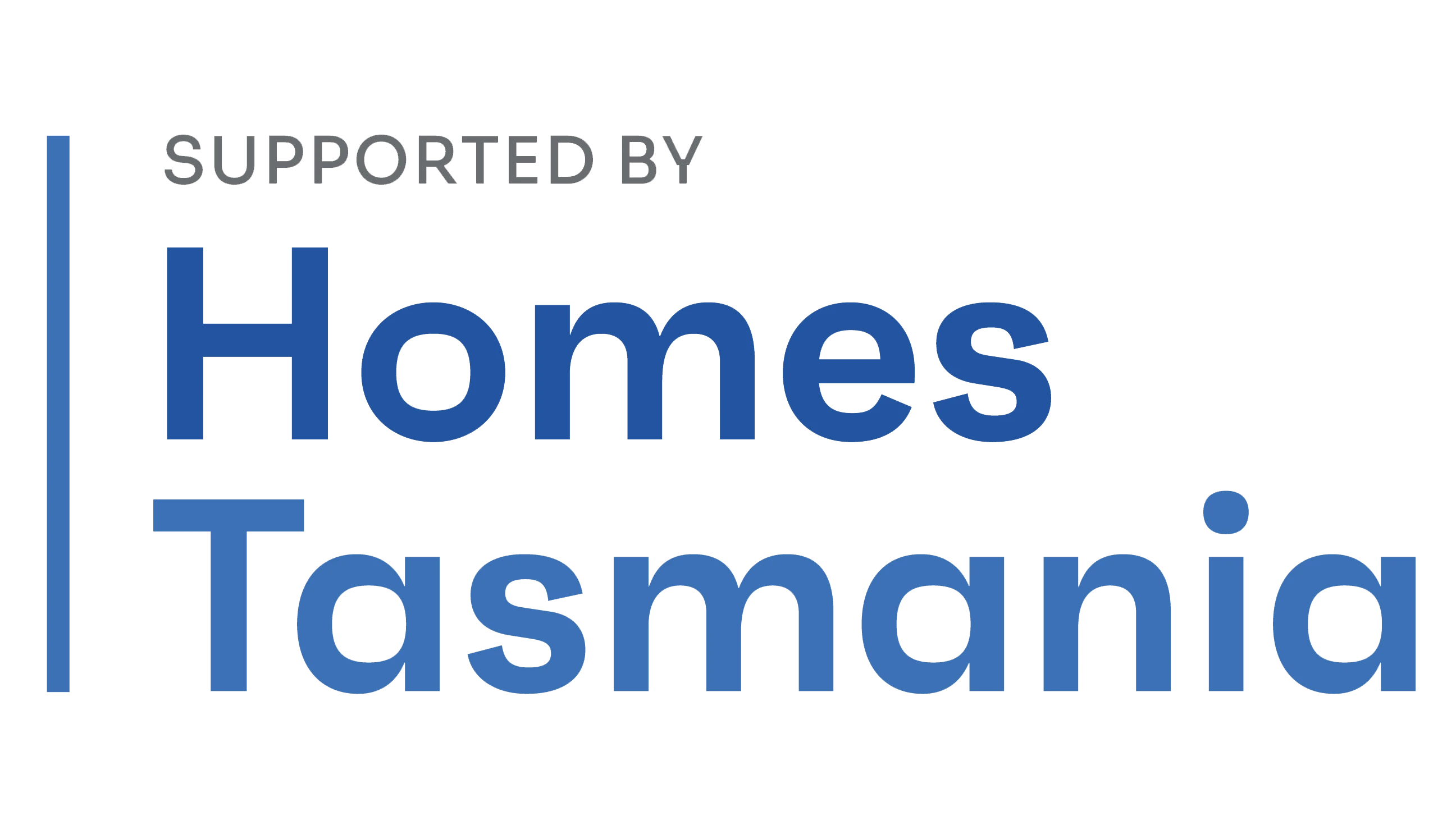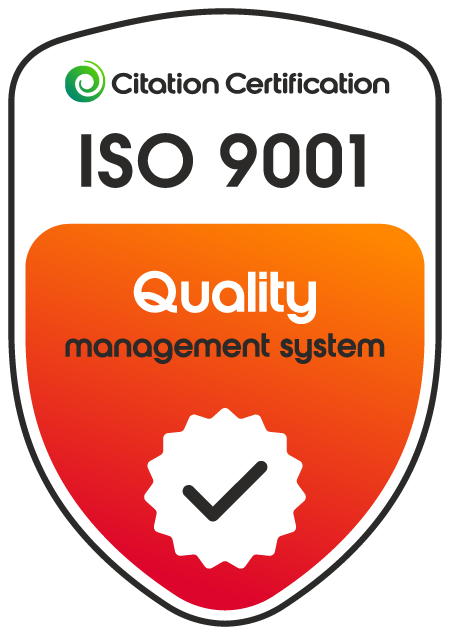CatholicCare Tasmania’s Principal Aboriginal Consultant, Alarna Page recently attended the 2025 National Aboriginal and Torres Strait Islander Catholic Council (NATSICC) Assembly on Wonnarua Country, joining over 280 delegates under the theme “Pilgrims of Hope.” The gathering brought together Aboriginal and Torres Strait Islander Catholics, clergy, religious, and lay people from across Australia and Aotearoa New Zealand to celebrate the gifts First Nations Peoples bring to the Church.
Alarna, formerly the Tasmanian proxy councillor, was appointed National NATSICC Youth Representative at the assembly’s conclusion. She also helped lead the Youth Assembly, where young Aboriginal and Torres Strait Islander Catholics explored faith, culture, and leadership. She described the youth as “passionate and driven,” sharing reflections on faith, identity, and connection. One young person hoped more Indigenous youth would find faith to guide their life journeys; another spoke of wanting deeper connections within the church and the freedom to be both strong and vulnerable in their relationship with God. Alarna said these voices show that young people are not just the future of the Church - they are its present, offering energy, insight, and leadership that must be welcomed and embraced.
Throughout the week, faith was described as something lived - shaped by family, hardship, and connection to Country. It was framed not just as belief, but as action, justice, and resilience. Country was honoured as sacred and healing, with delegates spending time on Country, listening to Elders, and reading the land as a form of spiritual and cultural literacy. Traditional practices like fire management were linked to biblical teachings from Genesis, showing how Aboriginal culture and scripture can speak to one another.
Technology was also explored as a challenge to humanity. Speakers such as Stan Grant warned that progress and efficiency can disconnect people from mystery, soul, and each other. Technology, while useful, cannot replace God, Elders, or culture - and cannot answer the deeper questions of identity and belonging.
Alarna left the assembly inspired and hopeful, reminding us that hope must always be followed by action. She encourages others to support NATSICC and its mission to walk together in culture, spirit, and faith.
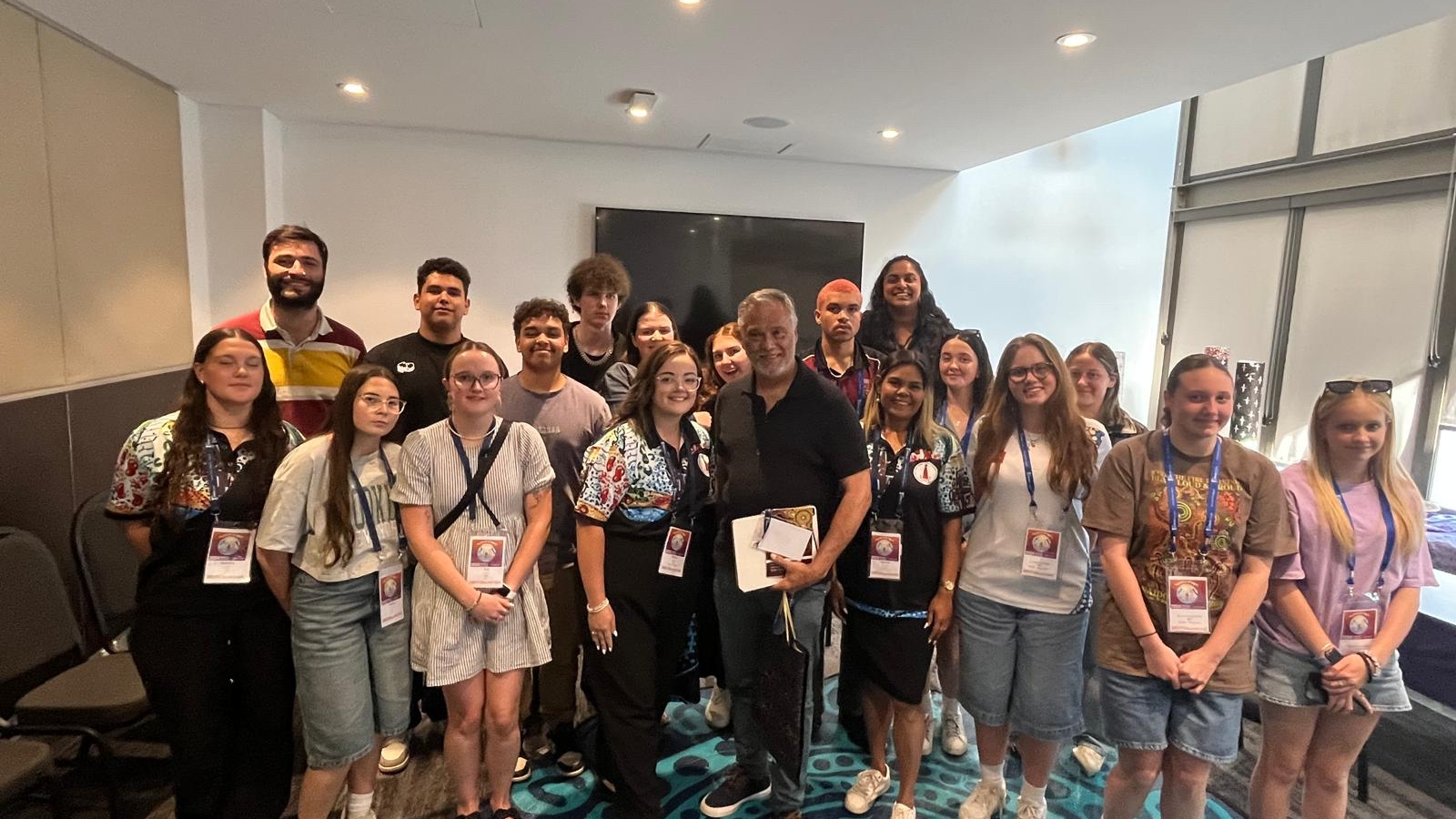
Other news you may be interested in
CatholicCare Tasmania’s Principal Aboriginal Consultant, Alarna Page recently attended the 2025 National Aboriginal and Torres Strait Islander Catholic Council (NATSICC) Assembly on Wonnarua Country, joining over 280 delegates under the theme “Pilgrims of Hope.” The gathering brought together Aboriginal and Torres Strait Islander Catholics, clergy, religious, and lay people from across Australia and Aotearoa New Zealand to celebrate the gifts First Nations Peoples bring to the Church.
Alarna, formerly the Tasmanian proxy councillor, was appointed National NATSICC Youth Representative at the assembly’s conclusion. She also helped lead the Youth Assembly, where young Aboriginal and Torres Strait Islander Catholics explored faith, culture, and leadership. She described the youth as “passionate and driven,” sharing reflections on faith, identity, and connection. One young person hoped more Indigenous youth would find faith to guide their life journeys; another spoke of wanting deeper connections within the church and the freedom to be both strong and vulnerable in their relationship with God. Alarna said these voices show that young people are not just the future of the Church - they are its present, offering energy, insight, and leadership that must be welcomed and embraced.
Throughout the week, faith was described as something lived - shaped by family, hardship, and connection to Country. It was framed not just as belief, but as action, justice, and resilience. Country was honoured as sacred and healing, with delegates spending time on Country, listening to Elders, and reading the land as a form of spiritual and cultural literacy. Traditional practices like fire management were linked to biblical teachings from Genesis, showing how Aboriginal culture and scripture can speak to one another.
Technology was also explored as a challenge to humanity. Speakers such as Stan Grant warned that progress and efficiency can disconnect people from mystery, soul, and each other. Technology, while useful, cannot replace God, Elders, or culture - and cannot answer the deeper questions of identity and belonging.
Alarna left the assembly inspired and hopeful, reminding us that hope must always be followed by action. She encourages others to support NATSICC and its mission to walk together in culture, spirit, and faith.

Other news you may be interested in
Other news

